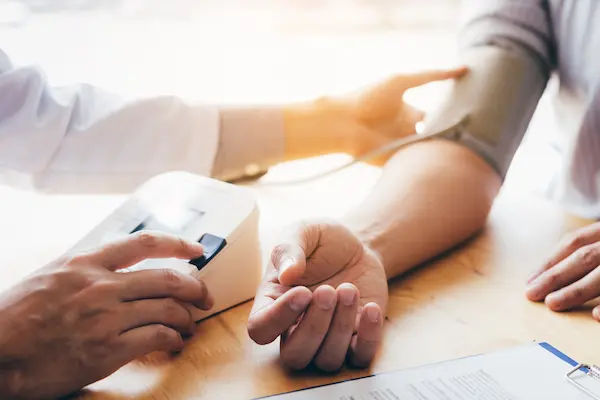- male
- 65 Years
- 29/01/2025
I've been taking cilametxl 50mg, moxvas 0.3mg, and minipress XL 5mg every morning and night, but I've noticed that my blood pressure drops temporarily and then spikes to around 17598 or 18595 by 4 p.m. and is high again early in the morning around 6 a.m. Why does this happen, and what can I do to manage these fluctuations better?
Answered by 1 Apollo Doctors
Its important to work closely with your doctor to adjust your treatment plan, as fluctuating high blood pressure can be a serious concern over time. Regular check-ups, monitoring, and lifestyle changes will also help manage your blood pressure more effectively. Make sure to follow your doctors advice closely to achieve better blood pressure control.
Dr. Shubham Suggests...
Consult a Cardiologist
Answered 04/07/2025
0
0

More Cardiology Health Queries
View allI've been having some on-and-off chest pain and stomach pain for the past two weeks. I'm also noticing some random tingling in different spots on my body and even some pain in my right shoulder that feels like a pulled muscle or maybe even trapped wind. Could all of these symptoms be connected to something significant, or should I not worry too much?
Ecg and cardiac enzymes are advised to tne patient ,cardiologist opinion..
Answered by 1 Apollo Doctors
I'm experiencing some heart-related issues that are making me a bit anxious. Back in December 2019, I had a fast heartbeat and some pain on my left side, so I went to a cardio doctor in Patna. After running an ECG, he prescribed me clonozepam, etizola, and a beta blocker, which really helped at the time. But lately, I've been noticing this fluttering sensation in my heart, and it's making me wonder if it's something I should be worried about or if it's fine to just ignore it. Could you give me some advice on this?
Visit your Physician for appropriate management
Answered by 1 Apollo Doctors
What stress can do to your body?
1)Aches/pains 2)Upset stomach(ulcers) 3)Fertility issues 4) Increased risk of heart attacks
Answered by 1 Apollo Doctors
Disclaimer: Answers on Apollo 247 are not intended to replace your doctor advice. Always seek help of a professional doctor in case of an medical emergency or ailment.




